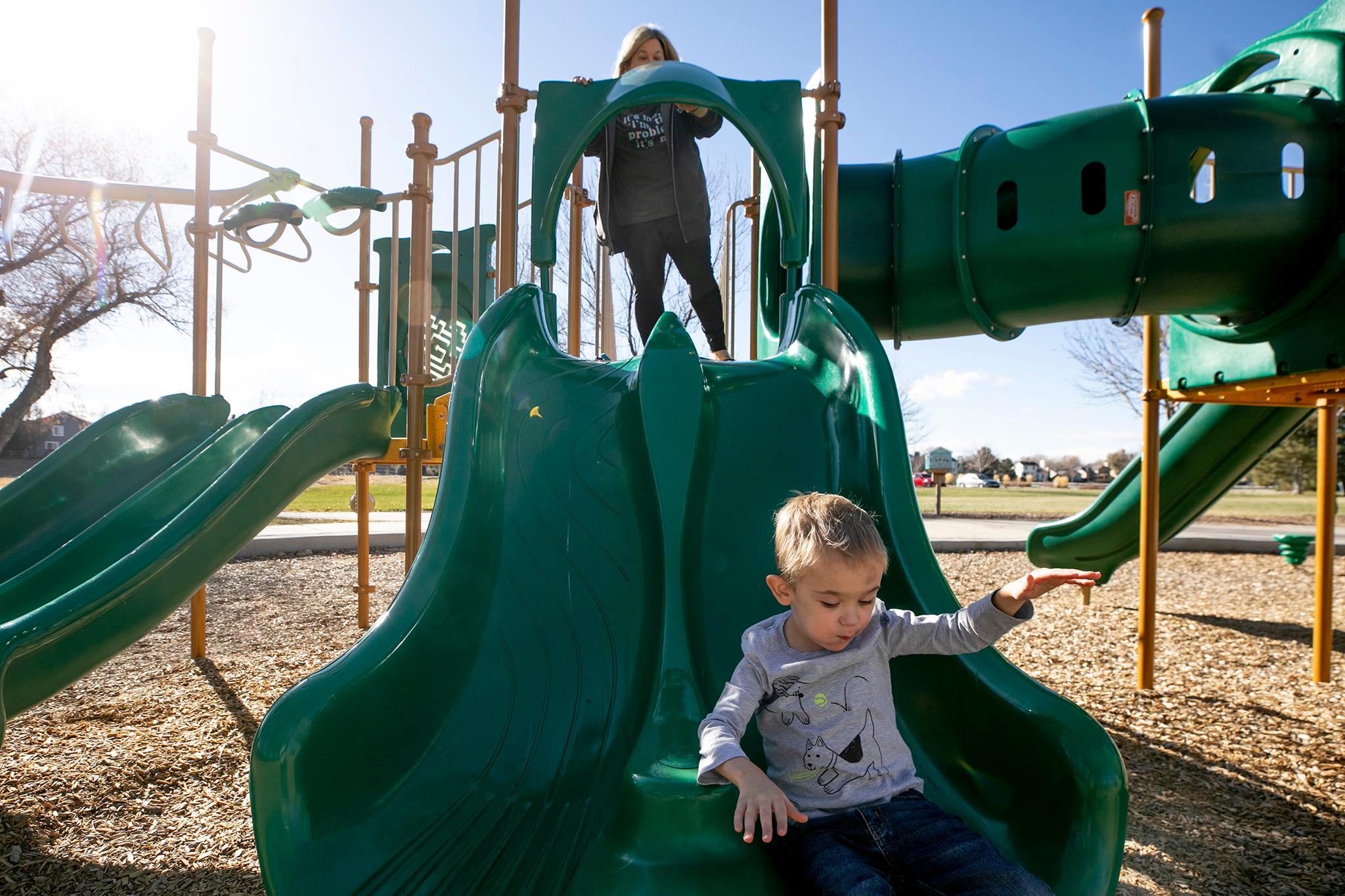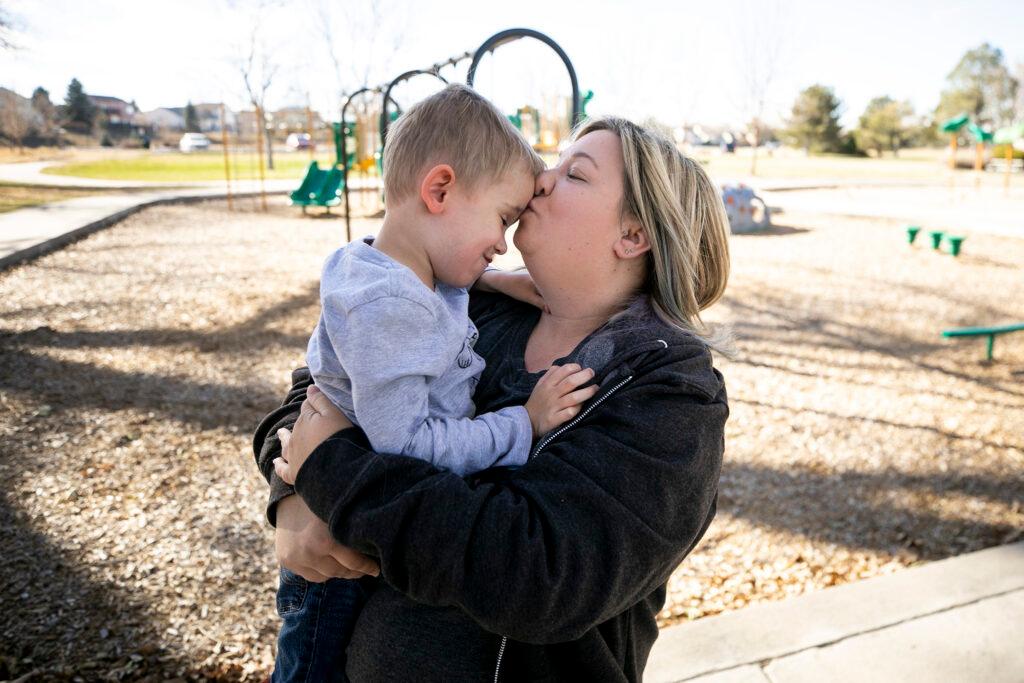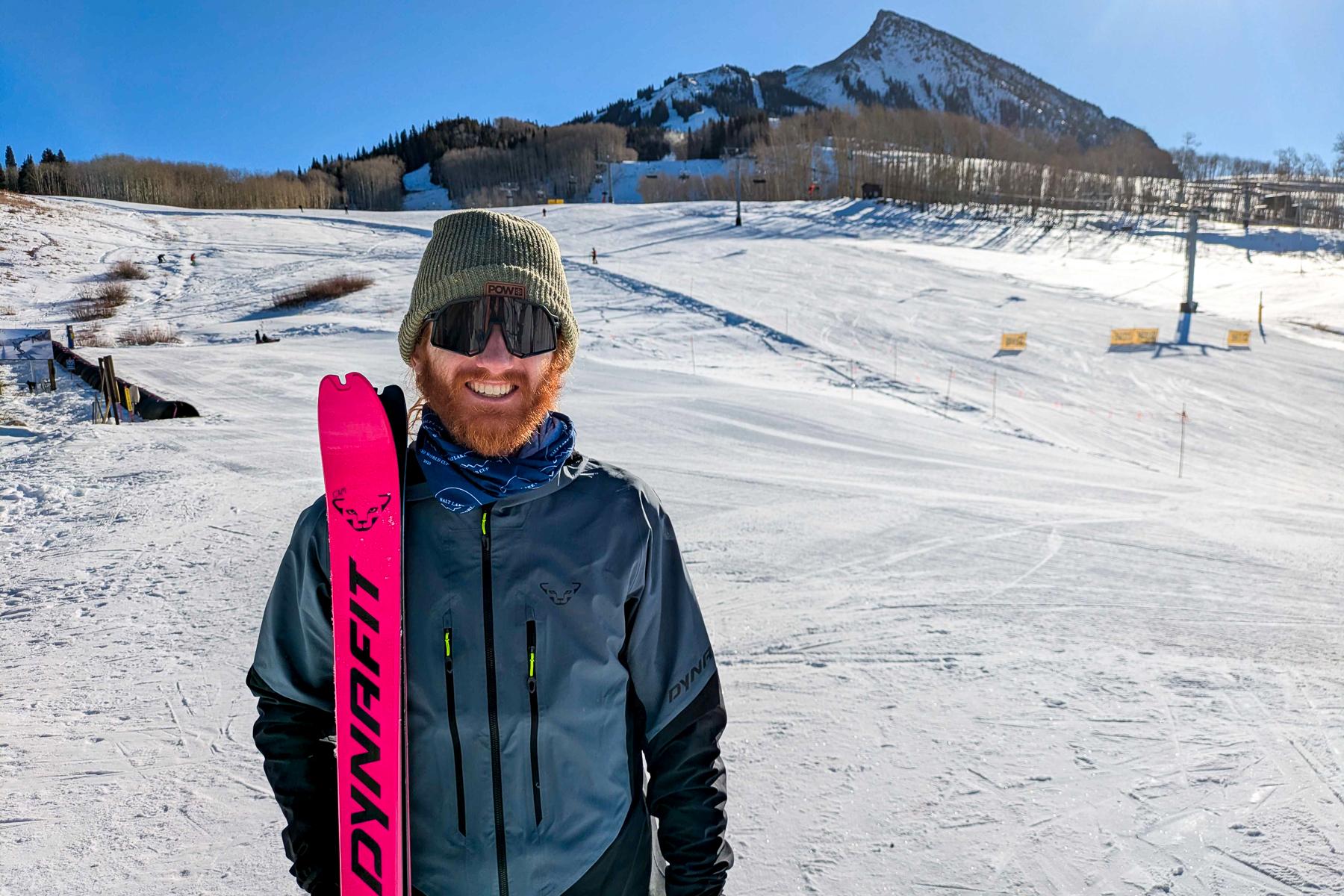
It’s a chilly Monday morning and Valerie Gonzalez just dropped off her kids at school. She’s about to have some rare downtime to catch up on the Kardashians while she does chores around her Westminster apartment.
Gonzalez, a single mom, moved to Colorado from California two years ago. She wanted to be closer to her sister and find a better life for her two kids, who are both autistic. They’ve both been diagnosed with autism spectrum disorder, but it manifests in different ways.
There’s Logan, her oldest.
“He's really good at math,” she said. “He loves music, he loves doing all the things, but he does struggle a lot with aggression.”
And 7-year-old Evangeline.
“She is the most girliest girl, but she is nonverbal,” Gonzalez said. “She does try to communicate in her own way, which does lead to screaming.”
The move has been good for Gonzalez in some ways. She said Colorado’s autism community is more tight knit than in California. But when it comes to finding consistent treatment and managing her family’s time, new challenges have developed.
“It's unstable because of the constant changes with (applied behavior analysis) therapists, I would say we had over six changes,” she said.
Gonzalez’s kids aren’t currently in applied behavioral analysis therapy, the treatment most common for autistic children. ABA helps young autistic children catch up on developmental milestones and learn to navigate a world that isn’t very sensitive towards neurodivergent people. Both of the Gonzalez children were dropped by their previous clinic in October because their therapist left the company.

These days, that’s a common occurrence plaguing the autism care industry. Providers say the state’s Medicaid program underpays for services, contributing to closures, employee burnout, and financial stress among clinics.
Parents say that’s now trickling down to affect families. Dozens of families were abruptly told to find new therapists for their children earlier this year, when Hopebridge, a company with locations in nearly a dozen states, closed 6 of its 8 Colorado offices.
“They put a really long letter out that explained that it was because of Medicaid not providing enough funding and that they had pretty much done everything they could do to go back and forth and try to find a [resolution], but that what [the state’s] paying is just not covering the costs of one-on-one therapy,” said Jenee Allen, a parent of a former Hopebridge child.
Allen and her husband were blindsided by the closure and were given only a month to find a new therapist for their 5-year-old autistic son, Beckett. For a child who’s normally in therapy sessions everyday, a month is a long time for development to stunt.
“By being there every day, he's getting consistency every day and he's getting as much as he can in the timeframe that he's the most moldable,” Allen said.
Allen and Gonzalez’s kids are all enrolled in Health First Colorado, the state’s free or low-cost Medicaid program. The number of families enrolled in Medicaid exploded in 2020, when the COVID-19 public health emergency declaration started, making it easier to enroll in the program.
That’s led to more competition for spots at autism care centers. Months after the emergency declaration ended, clinics are still closing and waitlists are still growing. Some parents, like Allen, have gotten lucky, and made a relatively quick transition to new therapists.
Gonzalez is in the opposite position. It’s been over a month since her family was dropped by their last clinic, and it’ll be at least another month before they’re off a waitlist.
“It's messing up the routine. They get used to certain things the way they're teaching them, and then come a long pause, they get back into what we are trying to prevent them from doing and they will start getting irritated, agitated.”
— Valerie Gonzalez, mother
Parents worry about the future of their autistic children and if resources will exist for them
Getting into therapy isn’t the end of families’ journeys. Many parents know therapy will only get their kid so far.
Brie Mastakoski, the mother of 5-year-old Riker, spends a lot of time at the park with her autistic son and his older sister. As the kids had fun exploring the playground, she was preoccupied with thoughts about the future. Right now, the immediate challenge is joining the Denver school system.
“We will not be ready for mainstream school,” Mastakoski said “And that's okay. We've accepted that, we've dealt with it.”
Mastakoski and her husband are looking at enrolling Riker in a private school that specifically serves children with developmental disabilities. But it’s expensive and they can only afford it if they can secure a subsidy by showing Riker has urgent needs.

“Basically we have to prove that the district cannot handle his level of needs, that he is going to be one of those kids that is going to need a one-on-one [paraprofessional],” she said.
Compared to Cindy Brown, Mastakoski and other parents are relatively new to this. Brown has been the legal guardian of her autistic granddaughter, Samantha, since 2010. Samantha is now 19, but she developmentally functions between the ages of 4 and 7 years old.
Brown has seen the system for disabled children inside and out. And now, as the caretaker for a young adult with severe developmental delays, she worries about what will happen to her granddaughter when she can no longer provide the care she needs.
“Sammie, she's always been a headbanger, but for the first two years we were here, there were three holes in the wall from her head. That was it,” Brown said. “The last two days she was home. There were 12 holes in the wall from her head, and I couldn't keep her from doing that. So something's wrong, either internally or with her meds.”
Over the last year, Samantha has stayed at various homes that serve people with intellectual and developmental disabilities. Brown said none of the three centers her granddaughter went to have been able to figure out what’s going on.
Brown wants to find more acute psychiatric care for Samantha, but is only aware of one psych unit in Colorado that is willing to take care of adults with low developmental levels. But, she’s been told they don’t have any beds available.
“There really isn't a place for kids like Sammie. I think we're letting go of a part of the population that really needs the support and really needs help, and we can't let that happen.”
— Cindy Brown, grandmother
Autism care providers said clinics in Colorado mainly focus on early intervention treatment with children because it’s easier to make a difference in a child’s life than an adult’s. On top of that, the state doesn’t reimburse providers for adult care as much as it does for children. That’s led to clinics cutting or, in most cases, completely dropping adult care from their services.
Many parents who are either waiting for spots to open up or worried their child’s current provider will close are awaiting a November 20 hearing at the state legislature, when Colorado’s Medicaid division is scheduled to discuss how much they want lawmakers to raise provider reimbursement rates in the upcoming session.









